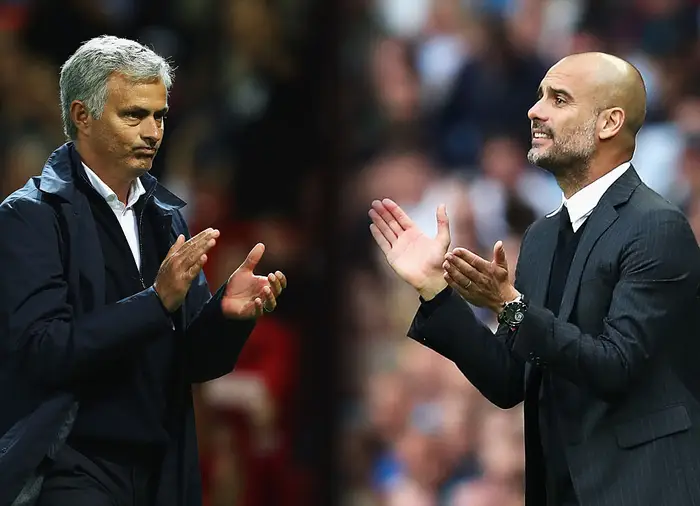The Best Football Coach of All Time: A Journey Through the Legends
When it comes to discussing the best football coach of all time, the conversation can quickly become heated. With countless legends who’ve graced the sidelines, it’s no easy task to pick just one. But let’s embark on this journey together, exploring some of the most iconic figures in football history who have shaped the game as we know it.
Table of Contents
Introduction
The world of football is full of unforgettable moments, but behind every great team is an even greater coach. These individuals are not just strategists but also motivators, mentors, and in some cases, revolutionaries. But who is the best football coach of all time? The answer isn’t straightforward, as it depends on various factors, from the number of titles won to the influence on the game. Let’s delve into the lives and legacies of the greatest football coaches to ever grace the touchline.
What Makes a Great Football Coach?
Before we dive into specific names, it’s crucial to understand what makes a coach truly great. Is it the number of trophies? The ability to inspire players? Or is it something more profound, like the capacity to change the very way the game is played? A great coach is often a mix of all these qualities and more.
Coaching in football is like conducting an orchestra. The coach must ensure every player is in sync, each knowing their role while working towards a common goal. It’s not just about having a tactical mind but also about understanding the psychology of players, managing egos, and creating a cohesive unit.
Vince Lombardi: The Godfather of Coaching
When discussing the greatest coaches, Vince Lombardi’s name often emerges, even though his expertise was in American football. However, his coaching philosophies transcended the sport and became a blueprint for success in any discipline. Lombardi’s famous quote, “Winning isn’t everything; it’s the only thing,” encapsulates his relentless drive and focus.
Lombardi’s approach to coaching was straightforward: demand excellence, focus on fundamentals, and inspire belief in every player. While he might not have coached a soccer team, his methodologies have influenced countless football coaches across the globe.
Sir Alex Ferguson: The King of Longevity
If consistency and longevity are the benchmarks, Sir Alex Ferguson might just be the greatest football coach of all time. Over his 26 years at Manchester United, Ferguson won 38 trophies, including 13 Premier League titles and two UEFA Champions League titles. His ability to rebuild teams while maintaining success is unparalleled.
Ferguson’s management style was a unique blend of discipline and psychological insight. He was known for his “hairdryer treatment,” a metaphor for his intense dressing room rants, but he also had a keen understanding of his players’ needs and motivations. His success was not just about tactics but also about managing people and creating a winning culture.
Bill Belichick: The Mastermind of Strategy
Like Lombardi, Bill Belichick made his name in American football, but his strategic genius has made waves across the coaching world, including in football. Belichick’s focus on preparation, adaptability, and exploiting opponents’ weaknesses has been admired by coaches in various sports. His famous “Do your job” mantra emphasizes accountability and precision, qualities that any football coach would value.
Belichick’s attention to detail and ability to adjust his game plan based on the opponent has led to comparisons with some of football’s greatest tacticians. His success with the New England Patriots serves as a model for building a dynasty, something every football coach aspires to achieve.
Johan Cruyff: The Innovator
Few coaches have had as profound an impact on football as Johan Cruyff. Not only was he a brilliant player, but his coaching philosophy revolutionized the game. Cruyff is credited with developing “Total Football,” a system where players could interchange positions fluidly, creating a dynamic and unpredictable style of play.
Cruyff’s influence is most evident in his time at FC Barcelona, where he laid the groundwork for what would become one of the most successful football dynasties in history. His belief in youth development, ball possession, and creative freedom has inspired countless coaches and remains a cornerstone of modern football tactics.
Pep Guardiola: The Modern Tactician
Pep Guardiola, a disciple of Johan Cruyff, has taken the principles of Total Football and refined them into his unique style. Guardiola’s teams are known for their relentless pressing, precise passing, and positional play. His success at FC Barcelona, Bayern Munich, and Manchester City has solidified his reputation as one of the best football coaches of all time.
Guardiola’s approach is both scientific and artistic. He meticulously plans every aspect of the game, yet allows his players the freedom to express themselves on the pitch. His ability to adapt and evolve, always staying ahead of the tactical curve, makes him a standout figure in football coaching.
Comparing the Titans: A Balanced Perspective
Now that we’ve explored the legacies of some of the greatest football coaches, it’s essential to compare them. How do Ferguson’s consistency and Guardiola’s innovation stack up against Lombardi’s philosophy or Cruyff’s revolution? Each coach brought something unique to the table, shaping the game in their way.
Comparing these legends is like comparing different artists in a museum. Each has a distinctive style and approach, making it difficult to declare one as definitively the best. However, what they all share is an unwavering commitment to excellence and a lasting impact on the sport.
The Impact of Coaching Beyond the Field
A great football coach’s influence extends beyond the pitch. They shape the culture of the club, the mentality of the players, and even the expectations of the fans. Coaches like Ferguson and Guardiola have created legacies that resonate through generations, influencing how the game is played and perceived.
Coaches also play a critical role in developing young talent, ensuring the future of the sport. Whether through youth academies or mentorship, the best coaches leave a lasting legacy by nurturing the next generation of football stars.
Why Picking the Best is So Difficult
The difficulty in naming the best football coach of all time lies in the subjectivity of the criteria. Is it the number of trophies? The influence on the game? Or perhaps the ability to inspire both players and fans alike? Each fan, player, and pundit might have a different answer.
In truth, the best football coach may not be a single individual but rather a composite of the qualities found in the legends we’ve discussed. It’s this blend of tactical genius, psychological insight, and visionary leadership that defines the greatest coaches in football history.
Conclusion
The debate over the best football coach of all time will likely continue as long as the sport exists. From Ferguson’s unrivaled longevity to Cruyff’s revolutionary ideas, each coach has left an indelible mark on the game. While it may be impossible to crown a definitive “best,” what is clear is that these coaches have shaped football into the global phenomenon it is today.
As fans, we are lucky to witness the brilliance of these coaches, past and present. Their influence goes beyond the trophies they’ve won; they’ve inspired millions, both on and off the pitch.
FAQs
1. Who is considered the best football coach of all time?
There is no unanimous answer, as the title depends on various factors such as trophies won, impact on the game, and personal preference. Coaches like Sir Alex Ferguson, Johan Cruyff, and Pep Guardiola are often mentioned in this debate.
2. What are the qualities of a great football coach?
A great football coach possesses tactical knowledge, psychological insight, leadership skills, and the ability to inspire and manage players. They also have a clear vision for their team and can adapt to different situations.
3. How has Johan Cruyff influenced modern football?
Johan Cruyff introduced the concept of “Total Football,” which emphasized fluid movement and positional interchangeability. His coaching philosophy has greatly influenced modern football tactics, particularly in teams like FC Barcelona.
4. Why is Sir Alex Ferguson often regarded as the best football coach?
Sir Alex Ferguson’s success at Manchester United, where he won 38 trophies over 26 years, combined with his ability to rebuild and adapt, has made him a legendary figure in football coaching.
5. How does Pep Guardiola’s coaching style differ from others?
Pep Guardiola’s style is characterized by high pressing, precise passing, and positional play. He emphasizes controlling the game through possession and has successfully implemented this approach at multiple top clubs.


